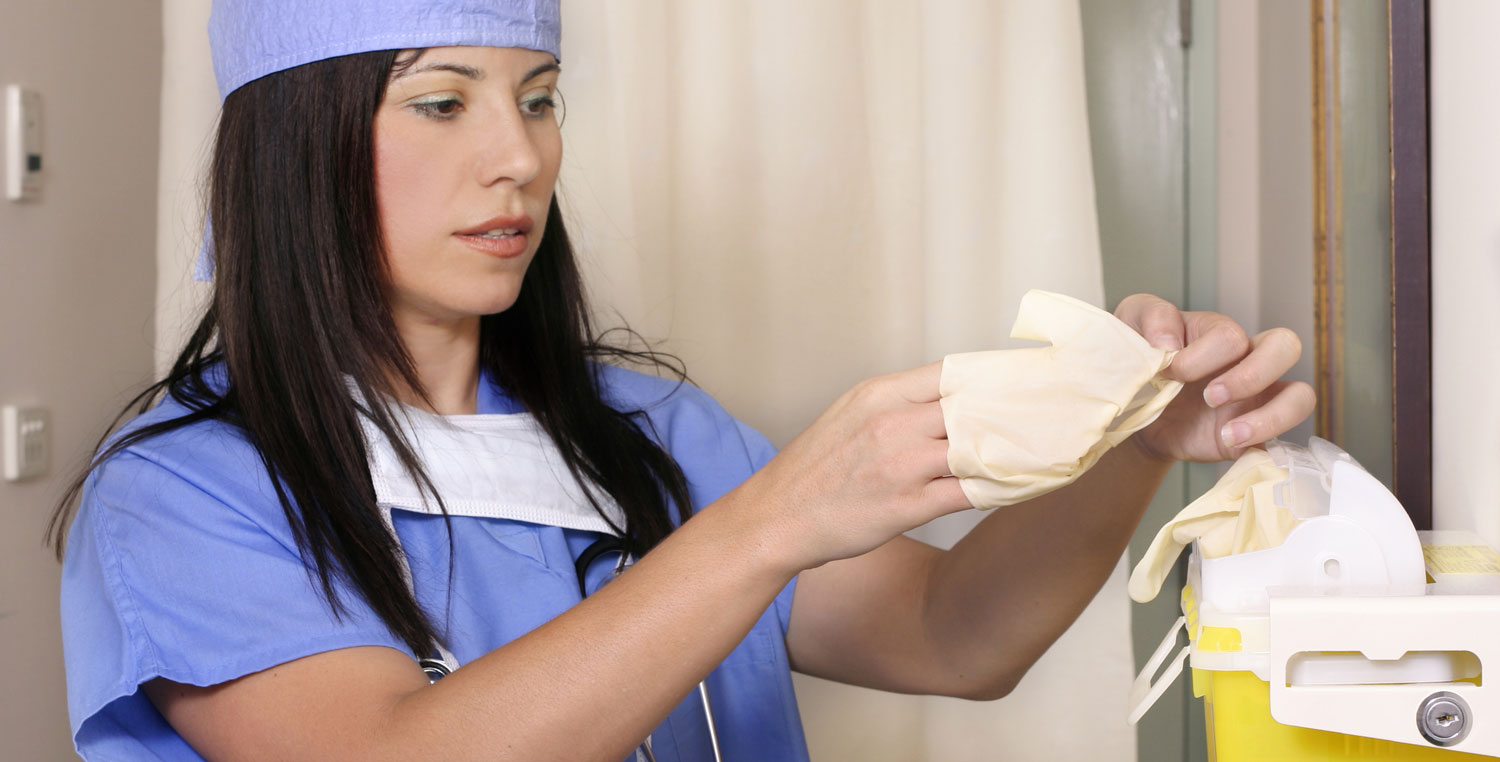 |
Read the Secretariat’s Press Release on the need to prioritise waste management during the COVID-19 outbreak.
BRS Secretariat urges sound management of medical and household waste as part of COVID-19 response
 Geneva, 20 March 2020 - With the coronavirus disease (COVID-19) pandemic continuing to spread and its impacts upon human health and the economy intensifying day-by-day, governments are urged to treat waste management, including of medical, household and other hazardous waste, as an urgent and essential public service in order to minimise possible secondary impacts upon health and the environment.
During such an outbreak, many types of additional medical and hazardous waste are generated, including infected masks, gloves and other protective equipment, together with a higher volume of non-infected items of the same nature. Unsound management of this waste could cause unforeseen “knock-on” effects on human health and the environment. The safe handling, and final disposal of this waste is therefore a vital element in an effective emergency response.
Effective management of biomedical and health-care waste requires appropriate identification, collection, separation, storage, transportation, treatment and disposal, as well as important associated aspects including disinfection, personnel protection and training. The UN Basel Convention’s Technical Guidelines on the Environmentally Sound Management of Biomedical and Healthcare Wastes, includes information and practical aspects of waste management useful for authorities seeking to minimise hazards to human health and the environment.
Further resources on the safe handling and final disposal of medical wastes can be found on the website of the Basel Convention’s Regional Centre for Asia and the Pacific, in Beijing, which lists a series of guidance documents and best practices at: https://bcrc.tsinghua.edu.cn/en/col/1257152450718/index.html
The safe management of household waste is also likely to be critical during the COVID-19 emergency. Medical waste such as contaminated masks, gloves, used or expired medicines, and other items can easily become mixed with domestic garbage, but should be treated as hazardous waste and disposed of separately. These should be separately stored from other household waste streams and collected by specialist municipality or waste management operators. Guidelines on the specificities of recycling or disposing of such waste is given in detail in the Basel Convention’s Factsheet on Healthcare or Medical Waste, at: https://www.basel.int/?tabid=5839
Parties to the Basel Convention are currently working on a guidance document for soundly managing household waste and whilst not yet finalized, an initial draft may be consulted for provisional guidance: https://www.basel.int/?tabid=8227
The BRS Executive Secretary, Rolph Payet, stated that “All branches of society are coming together to collectively beat the virus and to minimize the human and economic impact of COVID-19 across the world. In tackling this enormous and unprecedented challenge, I urge decision-makers at every level: international, nationally, and at municipal, city and district levels, to make every effort to ensure that waste management, including that from medical and household sources, is given the attention - indeed priority - it requires in order to ensure the minimization of impacts upon human health and the environment from these potentially hazardous waste streams.”
Notes for Editors:
The Basel Convention on the Control of Transboundary Movements of Hazardous Wastes and their Disposal is the most comprehensive international environmental agreement on hazardous and other wastes and is almost universal, with 187 Parties. With an overarching objective of protecting human health and the environment against the adverse effects of hazardous wastes, its scope covers a wide range of wastes defined as hazardous based on their origin and/or composition and characteristics, as well as two types of waste defined as “other wastes”, namely household waste and incinerator ash. For more info see: www.basel.int
The Secretariat of the Basel, Rotterdam, and Stockholm Conventions, or BRS Secretariat, services the three leading multilateral environment agreements governing hazardous chemicals and waste, in order to protect human health and the environment. See www.brsmeas.org for more info and follow the @brsmeas twitter feed for daily news.
For BRS conventions general media enquiries see: www.brsmeas.org or contact:
Charlie AVIS,
BRS Public Information Officer,
Geneva +41-79-730-4495
|
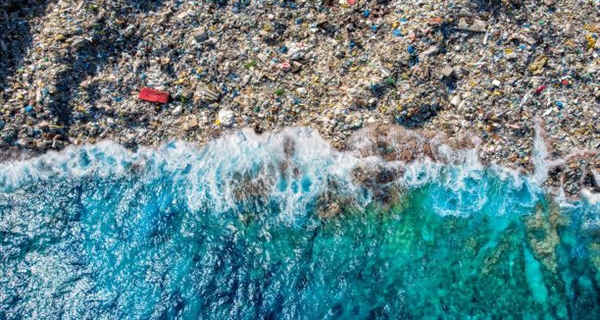 |
The first meeting of the Basel Convention’s new Plastic Waste Partnership concluded successfully in Seychelles, 5 March 2020. Read the outcomes summarised in the BRS Press Release.
Governments, industry, civil society and UN join forces to beat plastic waste pollution
 Geneva, 5 March 2020 - With an estimated 100 million tonnes of plastic waste in the oceans, 80-90% of which comes from land-based sources[1], a new Plastic Waste Partnership, established by the Basel Convention, has met for the first time to discuss ways to prevent, minimise, and soundly manage, plastic waste from across the world.
The meeting, convened by the Secretariat of the Basel, Rotterdam, and Stockholm Conventions (BRS) and hosted by the Seychelles Ministry of Environment, Energy and Climate Change, gathered more than 100 representatives from members of the Partnership, in Seychelles from 2 to 5 March 2020.
At the opening of the meeting, Norwegian Minister of Climate and Environment, Mr. Sveinung Rotevatn, called the Partnership “a unique opportunity to kick-start the efforts to better deal with the environmental challenges of plastic waste.” Mr. Didier Dogley, Seychelles Minister for Tourism, Civil Aviation, Ports and Marine then said that “in 2018, on World Environment Day, the world was called to beat plastic pollution. We were then reminded that our world is drowning in plastic pollution. I wish to commend the Basel Convention for initiating this Plastic Waste Partnership; I feel comforted to see that there is a real commitment by the world community towards fighting this plastic curse at the global level.”
The BRS Executive Secretary, Mr. Rolph Payet, announced a new project on plastic waste funded by the Norwegian Development Agency, Norad, to help build capacities for managing plastic waste in developing countries and countries with economies in transition. He described how this 6.9 million USD project will help operationalize the Plastic Waste Amendment adopted in May 2019 by 187 Parties to better incorporate plastic wastes of most concern into the legally-binding framework of the Basel Convention. The new project supports many activities of Convention’s work programme, for instance a Small Grants Programme which will channel funds to the grassroots level in priority regions.
The meeting outcomes included agreement on the activities the Partnership working group will tackle as a first step. This includes activities on prevention and minimization of plastic waste, facilitating its proper collection and recycling, preparations for entry into force of the Plastic Waste Amendment and plans for outreach and awareness raising activities. The working group will develop and implement these activities along with supporting pilot projects and will provide a first report back on its progress at the twelfth meeting of the Open-ended Working Group of the Basel Convention (Geneva, 22-25 June 2020).
Also launched during the meeting was a Plastic Waste Photo Contest, aiming to raise awareness not only of the plastic waste problem, but also the solutions out there, our collective progress to date and the challenges and opportunities moving forward. Entries from professional, amateur, and junior photographers are invited by 30 September 2020 and will be judged by a National Geographic photographer.
Reflecting on the packed week of discussions, events and announcements, BRS Executive Secretary, Mr. Rolph Payet, applauded the Partnership on its first great leap forward in tackling the plastic waste issue while noting that the hard work was just about to begin. He also reaffirmed the commitment of the BRS Secretariat to the issue and in its support to the Partnership.
Separately, Mr Payet met with the President of Seychelles, H.E. Mr Danny Faure. More details are available on the Seychelles State House website: https://www.statehouse.gov.sc/news/4758/president-faure-receives-professor-rolph-payet-at-state-house.
The meeting was made possible using funding generously provided by the governments of Canada, Japan, Norway, Seychelles and Switzerland.
Notes for Editors:
The Basel Convention on the Control of Transboundary Movements of Hazardous Wastes and their Disposal is the most comprehensive international environmental agreement on hazardous and other wastes and is almost universal, with 187 Parties. With an overarching objective of protecting human health and the environment against the adverse effects of hazardous wastes, its scope covers a wide range of wastes defined as hazardous based on their origin and/or composition and characteristics, as well as two types of waste defined as “other wastes”, namely household waste and incinerator ash. For more info see: www.basel.int
On May 10, 2019, the Parties to the Basel Convention adopted two important decisions to address plastic waste, namely the adoption of the Plastic Waste Amendment, and a decision setting out a range of further actions, including the establishment of the Plastic Waste Partnership. These steps have strengthened the Basel Convention as the only global legally-binding instrument to specifically address plastic waste. For more on the Amendments see: https://www.basel.int/?tabid=8347
On March 2, 2020, the Plastic Waste Partnership launched the Plastic Waste Photo Contest, to raise awareness on this global issue. For more information on the Contest see: https://www.basel.int/?tabid=8348
The Secretariat of the Basel, Rotterdam, and Stockholm Conventions, or BRS Secretariat, services the three leading multilateral environment agreements governing hazardous chemicals and waste, in order to protect human health and the environment. See www.brsmeas.org for more info and follow the @brsmeas twitter feed for daily news.
For more on the Plastic Waste Partnership, contact:
Susan WINGFIELD
BRS Programme Officer, Geneva
+41-22-9178406
Melisa LIM
BRS Programme Officer, Geneva
+41-22-91782283
For BRS conventions general media enquiries see: www.brsmeas.org or contact:
Charlie AVIS
BRS Public Information Officer, Geneva
+41-79-730-4495
|
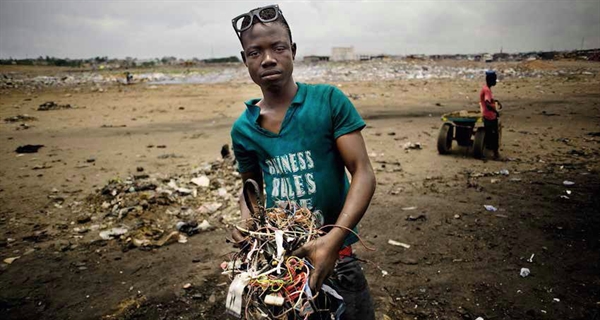 |
The BRS Secretariat and partners’ Massive Open Online Course on electronic, or e-waste, is a unique opportunity to learn how you can become part of the solution, rather than part of the problem.
Enroll for this online course to help tackle the global E-waste challenge
 It is estimated that, by 2050, there will be about 120 million metric tonnes of e-waste produced per year, far-outstripping current capacities to properly manage it in an environmentally and socially appropriate manner[1].
The Secretariat of the Basel, Rotterdam, and Stockholm Conventions (BRS), together with its partners the European Institute for Innovation and Technology’s Climate Knowledge and Innovation Community (Climate-KIC), the European Institute for Innovation and Technology’s RawMaterials Knowledge and Innovation Community (RawMaterials-KIC), the International Telecommunication Union, KU Leuven and the World Resources Forum, is proud to launch an updated Massive Open Online Course, or MOOC, on the electronic and electrical waste - or e-waste - challenge, also with contributions from the World Health Organization.
Rolph Payet, BRS Executive Secretary, said that “this MOOC will introduce you to the challenge of e-waste and especially to its environmentally sound recycling. Women and children are particularly vulnerable to impacts of e-waste processing on health. In some countries they represent as much as 30% of the workforce. When women and girls are affected in this way as the mothers of today and tomorrow, our common future is affected too. The course will guide you through the problem, to opportunities, and to possible actions at local, national and regional levels, and will introduce you to policy tools, standards and best practices for the collection, recycling, and final disposal of e-waste.”
“I have always believed that information and communication technologies (ICTs) have a vital role to play in combatting the major environmental challenges facing the world, such as climate change and e-waste,” said Malcolm Johnson, ITU (International Telecommunication Union) Deputy Secretary-General. “So, I am especially pleased to support this MOOC which will enable stakeholders across the world - in developing and developed countries alike - to access valuable e-waste resources, insights, best practices, standards and tools, and translate these into practical actions to protect people’s health and the environment.”
“E-waste is a serious health problem affecting millions of young children, adolescents, future mothers to-be. These are people who work in dangerous conditions to retrieve precious metals to earn money to support their families. This work exposes them to dangerous chemicals, heavy metals, toxic air. E-waste pollutes their communities, their homes, their schools, their soil, their food, and the air they breathe. We urgently need to have e-waste very clearly identified as a health problem. As the health agency of the United Nations, WHO’s duty is to communicate the evidence, the information, the tools we have available to address this emerging health hazard. We must raise awareness, and advocate for multisectoral policies that promote and protect our children’s health and their rights” added Maria Neira, Director, Department of Environment, Climate Change and Health, at the World Health Organization (WHO).
EIT Climate-KIC’s Learning Services Lead, Solveig Zophoniasdottir, added: “Our MOOC highlights that e-waste is a societal challenge that also is part of a larger opportunity to create a prosperous zero carbon future, driven by innovation, jobs, and investment. EIT Climate-KIC is seizing that opportunity by connecting both public and private sectors with climate change-focused education, research and innovation. Ideas are the oxygen of growth in the zero-carbon economy, and I am convinced that this collaboration with UNEP will spark many new ones.”
Karel Van Acker, professor in Circular Economy at KU Leuven in Belgium and a member of EIT RawMaterials, mentioned the huge opportunities of a circular economy for electronics in saving resources, lowering the environmental footprint and recovering value, and the close link it has with climate change mitigation.
According to Bas de Leeuw, Managing Director of the World Resources Forum the relaunch of the MOOC on E-waste comes very timely: “Circular Economy is attracting worldwide attention, in particular stimulated by the programs of the European Commission and others. We need to make sure that this not only makes sense for the environment but also for the economy, and for wellbeing and human development in developing countries. At the WRF we have hands-on experience in this field through our Sustainable Recycling Industries (SRI) program, and we are very pleased to be able to share our knowledge and skills to the wider community. Making standards – which is a core priority in our portfolio - is one thing, turning them into action requires further capacity building and supporting all stakeholders in the value chains.”
Fast-growing waste stream
E-waste is a fast-growing waste stream in the world and poses a number of serious threats to human health and the environment. Conversely, if undertaken in an environmentally sound manner, e-waste recycling can offer sustainable livelihoods, green and decent work, and contribute to the development of a circular economy.
The course opens on Tuesday 18th February, and is aimed at students and researchers, policy makers in the environment and telecommunication sector, practitioners, entrepreneurs, e-waste recyclers and government officials and invites participants to become part of the solution to this growing problem. Relevant for developed and developing countries alike, the 8-week programme covers all aspects of e-waste with a view to turn the threat of this global explosion of e-waste into an opportunity. The course is organized in five mini-courses which could be taken one after the other or independently.
The MOOC explores and explains the Basel Convention technical guidelines on transboundary movements of electrical and electronic waste and used electrical and electronic equipment, in particular regarding the distinction between waste and non-waste.
E-waste can be classified as hazardous waste under the Basel Convention due to the presence of toxic materials such as mercury, lead and brominated flame retardants which include some polybrominated diphenyl ethers listed in the annexes to the Stockholm Convention.
E-waste may also contain precious metals such as gold, copper and nickel and rare materials of strategic value such as indium and palladium. These precious and heavy metals could be recovered, recycled and used as valuable source of secondary raw materials.
To register for the MOOC: https://learning.climate-kic.org/en/programmes-and-courses/e-waste
For more information on the MOOC: https://www.basel.int/Implementation/TechnicalAssistance/MOOC/tabid/4966/Default.aspx
The MOOC was updated and expanded thanks to the generous financial support of the European Union.
-----------------
Notes for editors:
The Basel Convention on the Control of Transboundary Movements of Hazardous Wastes and their Disposal is the most comprehensive international environmental agreement on hazardous and other wastes and is almost universal, with 187 Parties. With an overarching objective of protecting human health and the environment against the adverse effects of hazardous wastes, its scope covers a wide range of wastes defined as hazardous based on their origin and/or composition and characteristics, as well as two types of waste defined as “other wastes”, namely household waste and incinerator ash. For more info see www.basel.int The Secretariat of the Basel, Rotterdam, and Stockholm Conventions, or BRS Secretariat, services the three leading multilateral environment agreements governing hazardous chemicals and waste, in order to protect human health and the environment. See www.brsmeas.org for more info and follow the @brsmeas twitter feed for daily news.
EIT Climate-KIC is Europe’s largest public-private partnership addressing climate change through innovation to build a net zero carbon economy. With over 380 formal partners from across 26 countries, its mission is to catalyse systemic change for climate action through innovation in areas of human activity that have a critical impact on greenhouse gas emissions - cities, lands, materials and finance - and to create climate-resilient communities. Education underpins these themes to accelerate learning and to inspire and empower the next generation of climate leaders.
EIT RawMaterials, initiated and funded by the EIT (European Institute of Innovation and Technology), a body of the European Union, is the largest consortium in the raw materials sector worldwide. Its vision is to develop raw materials into a major strength for Europe. Its mission is to enable sustainable competitiveness of the European minerals, metals and materials sector along the value chain by driving innovation, education and entrepreneurship. EIT RawMaterials unites more than 120 core and associate partners and 180+ project partners from leading industry, universities and research institutions from more than 20 EU countries.
The International Telecommunication Union (ITU) is the United Nations specialized agency for information and communication
technologies (ICTs), driving innovation in ICTs with a global membership including 193 Member States and over 900 companies, universities, and international and regional organizations. Established in 1865, ITU is responsible for coordinating the shared global use of radio-frequency spectrum, promoting international cooperation in assigning satellite orbits, improving communication infrastructure in developing countries, and establishing international standards that support the interconnection and interoperability of a vast range of communications systems. From broadband networks to cutting-edge wireless technologies, aeronautical and maritime navigation, radio astronomy, oceanographic and satellite-based earth monitoring as well as converging fixed-mobile phone, Internet and broadcasting technologies, ITU is committed to connecting the world. For more information, visit: www.itu.int
KU Leuven is Europe’s most innovative university (according to the news agency Reuters) and ranks 48th in the Times Higher Education World University Rankings. As Belgium's largest university, KU Leuven welcomes close to 60,000 students from over 140 countries. Its 7,000 researchers are active in a comprehensive range of disciplines. KU Leuven is a founding member of the League of European Research Universities (LERU) and has a strong European and international orientation. www.kuleuven.be
The World Health Organization (WHO) works worldwide to promote health, keep the world safe, and serve the vulnerable. Our goal is to ensure that a billion more people have universal health coverage, to protect a billion more people from health emergencies, and provide a further billion people with better health and well-being. As the health agency for the United Nations, we are building a better, healthier future for people all over the world. For more information about WHO and its work, visit www.who.int. Follow WHO on Facebook; Twitter; YouTube; Instagram
The World Resources Forum (WRF) is best-known for its annual flagship events, providing the global platform for multi-stakeholder dialogue on resource governance and resource efficiency. The WRF Secretariat also leads or contributes to large projects in these fields, including the Swiss-funded Sustainable Recycling Industry (SRI) program, a range of EC H2020 coordination and research projects - FORAM, CEWASTE, RE:SOURCING and CICERONE – and a number of projects with United Nations, development agencies and industry. Together with UNEP the WRF has published a MOOC on Decoupling (The Revolution Trainer), and together with the BRS Convention Secretariat and partners the MOOC on e-waste. www.wrforum.org
For more information, contact:
BRS Secretariat – Francesca Cenni, Programme Officer,
francesca.cenni@brsmeas.org tel: +41-22-9178364
BRS Press – Charlie Avis, Public Information Officer
Charles.avis@brsmeas.org tel: +41-79-7304495
|
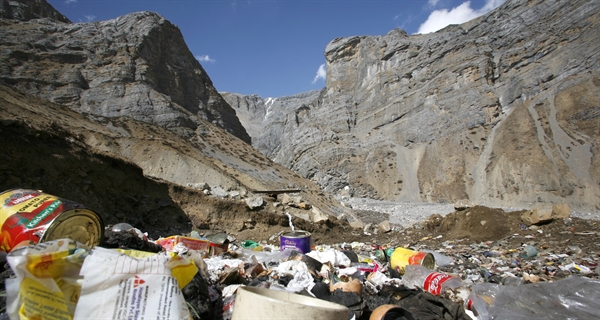 |
International Mountains Day 2019 marked by a special event in Geneva on 11 December, coinciding with the launch of a new project to help tackle plastic pollution, funded by Norway. Read the BRS Press Release.
New UN project tackles plastic pollution in mountainous and remote regions
 Representatives from governments, international organisations, business and industry, and civil society gathered today in Geneva to launch a new UN project on plastic waste in mountainous and remote regions.
The growth of plastics production since the mid-20th century has substantially outpaced any other manufactured material. Around 60 per cent of all plastics ever produced have been discarded and are accumulating in landfills or in the natural environment[1].
Pollution from plastic waste is a growing global concern. The public is increasingly moved by images of plastic waste in seas and on beaches worldwide, whilst simultaneously, scientific research aims at understanding the effect of particles known as “microplastics” on human health and the environment. Much of the on-going research is focused on effects of microplastics on the marine and freshwater environments; however, little is known about the impact of microplastics on inland ecosystems.[2] This is particularly worrying given the importance of land-based ecosystems and the services they deliver. Plastic is everywhere, even in places where one would not expect to find it. Remote but important regions, and populations, are increasingly impacted. For example, microplastic can be found in high-altitude, apparently pristine alpine nature reserves[3] and at the same time, in the Arctic or on small islands in the middle of our oceans, for example the Indian Ocean[4].
The Basel Convention on the Control of Transboundary Movements of Hazardous Wastes and their Disposal was adopted in 1989 and as of today has 187 Parties, giving it almost universal coverage. It is the only legally-binding agreement covering plastic waste. Recent decisions at the Basel Convention’s Conference of Parties – or COP - have shown that the international community recognises the need to tackle this problem at source. In May 2019 the ground-breaking decisions to amend the Annexes of the Convention was a first step to challenge the most pressing questions in the field of plastic waste, namely, how to better control transboundary movements of plastic wastes, how to deal with enormous quantities of plastic waste in an environmentally sound manner and how to prevent leakages into the environment, giving ever more attention to land-based sources of plastic waste.
Today, 11 December, we celebrate the International Mountains Day. Designated by the United Nations General Assembly in 2003, this day raises awareness on the beauty of mountains and their importance to our daily life, highlights opportunities and constraints in mountain development, and builds alliances that will bring positive change to mountain environments – and the people who live there - around the world.
Thus, the Secretariat of the Basel Convention is proud to announce the start of a new project named “Plastic waste in remote and mountainous areas”. The project aims to collect best practices of the environmentally sound management of plastic waste and raise awareness for the problem within the tourism sector and outdoor recreation industry. Subsequently, the project seeks to apply the collected best practices to mountainous and remote areas in a developing country setting through pilot testing of the outcomes. Envisaged partners include UN Environment Programme, ski and mountaineering organisations, and the private sector including tourism and sports equipment manufacturers.
NOTES for EDITORS:
The Basel Convention on the Control of Transboundary Movements of Hazardous Wastes and their Disposal is the most comprehensive international environment on hazardous and other wastes and is almost universal, with 187 Parties. With an overarching objective of protecting human health and the environment against the adverse effects of hazardous wastes, its scope covers a wide range of wastes defined as hazardous based on their origin and/or composition and characteristics, as well as two types of waste defined as “other wastes”, namely household waste and incinerator ash. For more info see www.basel.int
The Secretariat of the Basel, Rotterdam, and Stockholm Conventions, or BRS Secretariat, supports Parties implement the three leading multilateral environment agreements governing chemicals and waste, in order to protect human health and the environment. See www.brsmeas.org for more info and follow the @brsmeas twitter feed for daily news.
The Basel Convention offers avenues for all States to take collective action towards minimising plastic waste generation at source and promoting their environmentally sound management. The recent Conference of the Parties (COP), 29 April to 10 May 2019 in Geneva, decided upon a range of additional steps to better address the challenges of plastics wastes[5] including amendments to the Convention on plastic wastes[6]; and the establishment of a new Partnership on Plastic Waste. This Partnership, launched in October 2019, is designed as an international vehicle for public-private cooperation, sharing of best practices, and technical assistance in the area of at-source measures to minimise and more effectively manage plastic waste, thus helping tackle the global environmental problem of marine plastic litter. More on minimising plastic waste here.
Media enquiries, interviews, more information, contact:
Charlie Avis: Public Information Officer, BRS Secretariat
Charles.avis@brsmeas.org Tel: +41-79-7304495
Substantive questions related to the project, contact:
Marius Wiher: Programme Officer, BRS Secretariat
marius.wiher@brsmeas.org Tel.: +41-22-9178828
[1] Bigalke, Moritz; Filella, Montserrat (2019). Foreword to the research front on ‘Microplastics in Soils'. Environmental chemistry, 16(1-2), pp. 1-2. CSIRO Publishing. Doi: 10.1071/ENv16n1_FO
[3] https://www.unibe.ch/news/media_news/media_relations_e/media_releases/2018/medienmitteilungen_2018/ soils_in_swiss_nature_reserves_contain_significant_quantities_of_microplastics/index_eng.html
|
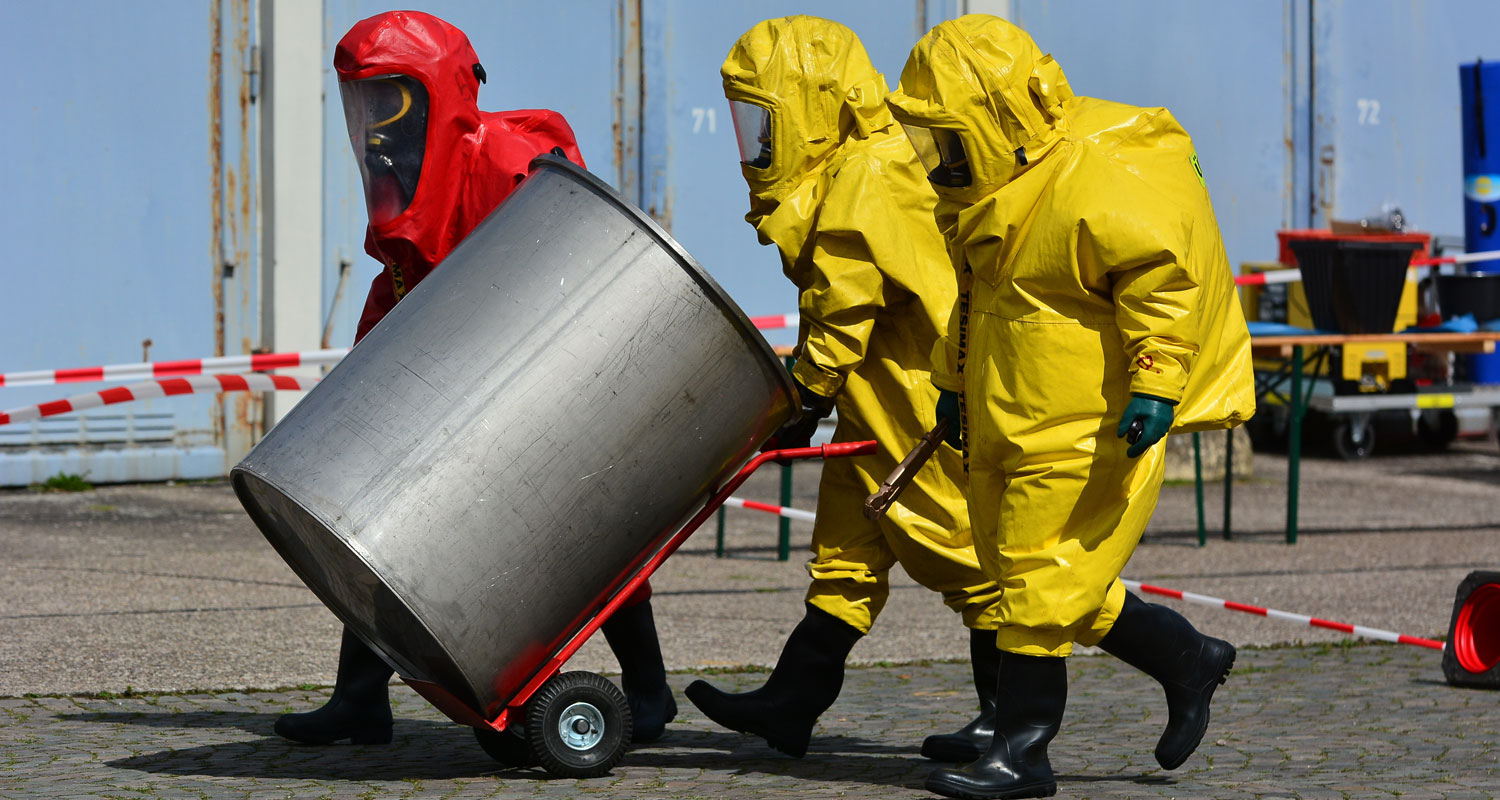 |
Read the BRS Press Release summarising outcomes of the 15th meeting of the Chemical Review Committee of the Rotterdam Convention, which concluded 10 October 2019 at FAO headquarters in Rome.
UN experts recommend stricter trade measures for PFOA
 Rome, Italy, and Geneva, Switzerland: 10 October 2019 - UN experts have recommended stricter, legally-binding measures for information exchange concerning trade in the industrial chemical perfluorooctanoic acid (PFOA), its salts and PFOA-related compounds, widely used in domestic non-stick cooking ware and food-processing appliances, textiles, paper and paints, and firefighting foams. PFOA is known to be toxic to humans and the environment with links to major health issues such as kidney cancer, testicular cancer, thyroid disease, and pregnancy-induced hypertension.[1]
With a goal of protecting human health and environment by assisting governments to make informed decisions concerning trade in pesticides and industrial chemicals, the UN Rotterdam Convention’s Chemicals Review Committee (CRC) held its 15th meeting at the Food and Agriculture Organization (FAO) Headquarters in Rome, from 8 to 10 October 2019. Chemicals experts from all the UN regions attended the meeting together with representatives from government, civil society and industry.
PFOA was included earlier this year for elimination in Annex A to the UN Stockholm Convention, and should there be a complimentary listing in Annex III by the Rotterdam Convention when its governing body meets in 2021 this would imply more information would be available for countries wishing to still use PFOA. It would also put in place a legally-binding, structured information exchange procedure based on prior informed consent to trade. This would enable importing countries to be more informed, to soundly manage the chemical and to lower the risk of harmful impacts on health and the environment.
The experts at the CRC meeting also reviewed three additional chemicals, namely: the pesticide amitrole; the industrial chemical decabromodiphenyl ether; and nonylphenols and nonylphenol ethoxylates (pesticide and industrial chemical). Of these, the Committee decided to recommend that the governing body of the Convention (the Conference of the Parties or ‘COP’) list decabromodiphenyl ether in Annex III. The CRC will now prepare a detailed decision guidance document to accompany its recommendation to the COP.
The work of the Chemicals Review Committee provides an important contribution to the implementation of the Sustainable Development Goals (SDGs), in particular SDG12, which refers in its targets to the sound management of chemicals and waste” said Mr. Hans Dreyer, Executive Secretary of the Rotterdam Convention (FAO), who also commended the work of the 31 international experts of the Committee.
Mr. Carlos Martin-Novella, Deputy Executive Secretary of the Rotterdam Convention (UNEP), added that “This Convention exists to ensure information exchange takes place so that governments may take informed decisions and share responsibility concerning the trade in hazardous chemicals, thus protecting human health and the environment. The experts’ recommendation to list PFOA, and also move ahead with one additional chemical, is therefore a positive step towards the sound management of chemicals across the world.”
Note for Editors:
The Rotterdam Convention on the Prior Informed Consent Procedure (PIC) for Certain Hazardous Chemicals and Pesticides in International Trade, is jointly administered by the United Nations Food and Agriculture Organization (FAO) and the United Nations Environment Programme (UNEP). The 161 Parties to this legally-binding Convention share responsibility and cooperate to safely manage chemicals in international trade. To date 52 hazardous chemicals and pesticides are listed in its Annex III, making trade of these subject to a prior informed consent (PIC) procedure.
The Rotterdam Convention does not introduce bans but facilitates the exchange of information among Parties on hazardous chemicals and pesticides, and their potential risks. The information can be used to inform and improve decision making. In addition, through its PIC Procedure, the Convention provides a legally binding mechanism to support national decisions on the import of certain chemicals and pesticides in order to minimize the risk they pose to human health and the environment.
For more information, please contact:
For CRC/Rotterdam Convention: www.pic.int
- Christine FUELL, Secretariat of the Rotterdam Convention (FAO), Rome: +39-06-5705-3765, christine.fuell@fao.org
- FAO media relations office (For journalists) Rome: (+39) 06 570 53625. E-mail: FAO-Newsroom@fao.org
- Kei OHNO WOODALL, Secretariat of the Basel, Rotterdam and Stockholm Conventions (UNEP), Geneva: +41-79-2333218, +41-22-917-78201, kei.ohno-woodall@brsmeas.org
- For BRS conventions general media enquiries: www.brsmeas.org
- or contact: Charlie AVIS, Public Information Officer (UN Environment), Geneva +41-79-7304495
|
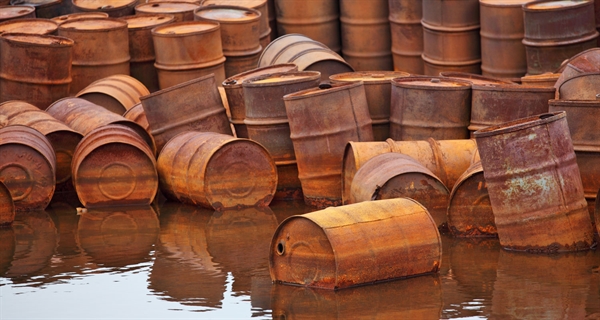 |
Entry into force of amendment to UN treaty boosts efforts to prevent waste dumping.
Read the Basel Convention press release on the entry into force of the Ban Amendment
 Date: 13 September 2019
Momentum and political will continues to grow for tackling the world’s ever-intensifying waste problem, with this week celebrating the threshold for the Basel Convention1’s Ban Amendment to enter into force being reached. The Ban Amendment prohibits the export of hazardous waste from developed countries (OECD, EU member states, Liechtenstein) to developing countries.
The Ban Amendment will enter into force on 5 December 2019 following the recent ratification by Croatia. At the time of its adoption in 1995, some felt the amendment was a way to address challenges faced by developing countries and countries with economies in transition to control imports of hazardous and other wastes that they were unable to manage in an environmentally sound manner.
The spirit of the Ban Amendment has been very much alive for many years, in spite of the time elapsed between its adoption and entry into force. Many developed country Parties to the Convention have already made use of their prerogative to ban the export of hazardous wastes, while many developing countries also made use of their prerogative to ban the import of hazardous wastes.
The entry into force of the Ban Amendment has significant political weight, acting as a flagship of international efforts to ensure that those countries with the capacity to manage their hazardous wastes in an environmentally sound manner take responsibility for them, while still allowing Parties wishing to receive wastes required as raw materials for recycling or recovery industries.
International efforts to reach the threshold for entry into force – 66 of the 87 Parties as at 22 September 1995 – included a multi-year country-led initiative by Indonesia and Switzerland launched in 2011, assistance by the Basel Convention Secretariat to individual Parties facing difficulties in ratifying the Ban Amendment, as well as awareness-raising activities by many other stakeholders.
Reflecting on these latest developments, the Executive Secretary of the Basel Convention, Rolph Payet, said today that “public awareness of the scale and impact of our waste problem has risen enormously in recent years and Parties are stepping up their efforts to collectively tackle this, both at home through innovative measures and also globally through international, multilateral action. The Basel Convention has continually evolved to reflect these new challenges and the entry into force of the Ban Amendment is another milestone towards minimising risks from the adverse effects of transboundary movements of hazardous waste. Quite simply, the world will be a safer, healthier place from now on.”
NOTES for EDITORS:
The Basel Convention on the Control of Transboundary Movements of Hazardous Wastes and their Disposal is the most comprehensive international environment on hazardous and other wastes and is almost universal, with 187 Parties. With an overarching objective of protecting human health and the environment against the adverse effects of hazardous wastes, its scope covers a wide range of wastes defined as hazardous based on their origin and/or composition and characteristics, as well as two types of waste defined as “other wastes”, namely household waste and incinerator ash. For more info see www.basel.int
The Ban Amendment was adopted by decision III/1 at the third meeting of the Conference of the Parties in 1995. It added a new preambular paragraph, an additional paragraph to Article 4 and a new Annex VII to the Convention. The Ban Amendment provides for the prohibition by Parties listed in Annex VII (members of the EU, OECD and Liechtenstein) of transboundary movements of hazardous wastes to States not in Annex VII. For more information: https://www.basel.int/Implementation/LegalMatters/BanAmendment/Overview/tabid/1484/Default.aspx
The Secretariat of the Basel, Rotterdam, and Stockholm Conventions, or BRS Secretariat, supports Parties implement the three leading multilateral environment agreements governing chemicals and waste, in order to protect human health and the environment. See www.brsmeas.org for more info and follow the @brsmeas twitter feed for daily news.
Media enquiries, interviews, more information, contact:
Charlie Avis
Public Information Officer, BRS Secretariat
Charles.avis@brsmeas.org
Tel: +41-79-7304495
Substantive questions related to the Ban Amendment, contact:
Yvonne Ewang-Sanvincenti
Legal Officer, BRS Secretariat
yvonne.ewang@brsmeas.org
Tel.: +41-22-9178112
1 The Basel Convention on the Control of Transboundary Movements of Hazardous Wastes and their Disposal was adopted in 1989, entered into force in 1992, and as of today has 187 Parties. Its overarching goal is the protection of human health and the environment against the adverse effects of hazardous wastes.
|
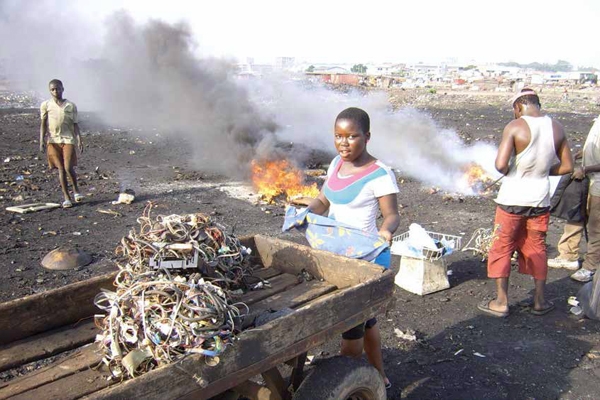 |
On the occasion of World Environment Day, read the BRS Press Release highlighting the need to make the invisible, visible to beat air pollution.
7 million premature deaths per year from visible and invisible air pollution
 As public attention today focusses on air pollution through the marking of the UN World Environment Day, it is more important than ever to realise that not all air pollution - such as smog - is visible and that there are many invisible pollutants in our air, including highly toxic Persistent Organic Pollutants (or POPs).
Known to be long-lasting, highly transportable through air and water, and bio-accumulative – meaning that they become concentrated in fatty tissue ever-higher up the food chain - POPs are linked to many negative impacts upon human health and the environment including certain types of cancers, birth defects, dysfunctional immune and reproductive systems, greater susceptibility to disease and damages to the central and peripheral nervous systems.[i]
Since POPs are transported through water and through air, neither of which respect national boundaries, global actions are required to combat this form of pollution. To that end, countries came together to define and implement the Stockholm Convention (adopted in 2001, entered into force in 2004), which by now has 182 Parties who are required to take measures to eliminate or reduce the release of POPs into the environment.
Last month, at the latest meeting of the Conference of Parties to the Convention, Parties agreed to add two more toxic chemical groups to the list of POPs to be eliminated: namely Dicofol and Perfluorooctanoic Acid (PFOA) and its salts and PFOA-related compounds. The latter has till now been used in a wide variety of industrial and domestic applications including non-stick cookware and food processing equipment, as well as a surfactant in textiles, carpets, paper, paints and fire-fighting foams.
The Stockholm Convention does not only deal with the reduction and elimination of these very toxic pollutants. It also makes provisions for monitoring the success of pollution reduction efforts, through its Global Monitoring Plan, which measures POPs concentrations around the world in the media of air, water, blood and breast milk, as well as working on the identification and development of alternatives to these chemicals.
Speaking on World Environment Day, the Deputy Executive Secretary of the Stockholm Convention, Carlos Martin-Novella, remarked that “Activities around the world today rightly remind us that air pollution is an enormous health problem, and silent killer, worldwide. But not all air pollution is as visible as the clouds of smog which sit over some of our cities. POPs are largely invisible to the eye and yet are amongst the most toxic substances known to humankind, travelling through air and water and ending up in the most remote environments, and in our bodies through the food-chain and through environmental exposure. We need to make the invisible, visible, and to that end the Stockholm Convention brings together countries who strive for a POPs-free future.”
Notes for Editors:
The Stockholm Convention on Persistent Organic Pollutants is a global treaty to protect human health and the environment from chemicals that remain intact in the environment for long periods, become widely distributed geographically, accumulate in the fatty tissue of humans and wildlife, and have harmful impacts on human health or on the environment. Exposure to Persistent Organic Pollutants (POPs) can lead to serious health effects including certain cancers, birth defects, dysfunctional immune and reproductive systems, greater susceptibility to disease and damage to the central and peripheral nervous systems. The Convention requires its Parties to take measures to eliminate or reduce the release of POPs into the environment. As of today, this legally-binding Convention has 182 Parties, giving it almost universal coverage. As of the end of this COP, 30 chemicals of global concern are listed under the Stockholm Convention. See www.pops.int
Listing of Chemicals: Persistent Organic Pollutants (POPs) under the Stockholm Convention
The two new chemicals listed in Annex A to the Stockholm Convention are the pesticide Dicofol, and Perfluorooctanoic acid (PFOA) its salts and PFOA-related compounds (some applications with time-limited exemptions). Listing in Annex A to the Convention obliges Parties to eliminate these chemicals from production and use. The two chemicals are listed on the basis of a robust review process addressing risks, management options and alternatives by the UN’s POPs Review Committee. Dicofol is used as a miticide on a variety of field crops, fruits, vegetables, ornamentals and tea and coffee and is known to cause skin irritation and hyperstimulation of nerve transmissions in humans as well as being highly toxic to fish, aquatic invertebrates, algae and birds. PFOA is a widely-used industrial chemical used in the production of non-stick cookware and food processing equipment, as well as a surfactant in textiles, carpets, paper, paints and fire-fighting foams. As a substance of very high concern, it is known to be linked to major health problems including kidney cancer, testicular cancer, thyroid disease and hypertension in pregnancy. More information on these chemicals is available in factsheets.
- For BRS conventions general media enquiries see: www.brsmeas.org or contact:
Charlie AVIS, Public Information Officer (UN Environment), Geneva +41-79-730-4495
|
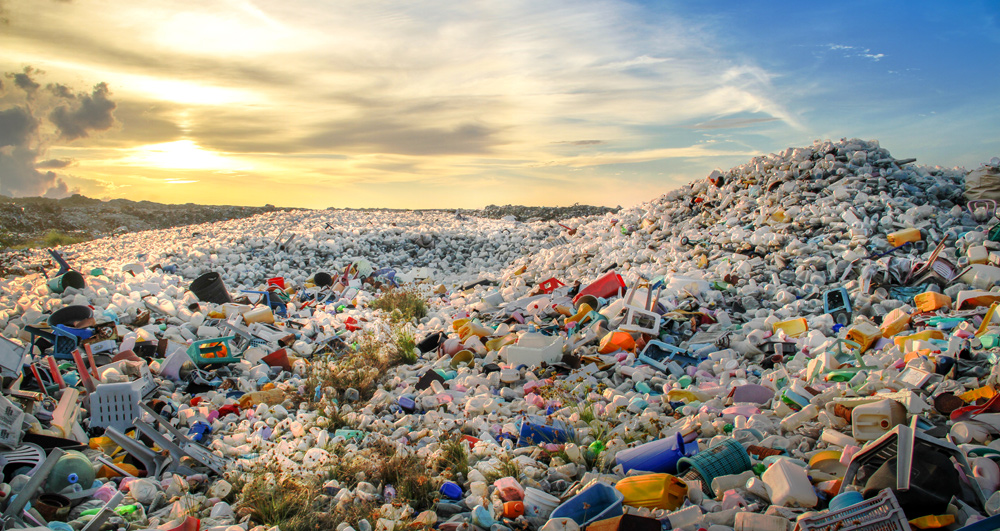 |
The 2019 Triple COPs concluded successfully with a raft of decisions to protect human health and the environment from the harmful effects of chemicals and wastes, including plastic waste.
New era for plastic waste management as governments agree landmark actions on chemicals and waste
 Geneva, 10 May 2019 - Decisions on plastic waste have been reached today in Geneva, as approximately 180 governments adopted a raft of decisions aimed at protecting human health and the environment from the harmful effects of hazardous chemicals and waste.
Pollution from plastic waste, acknowledged as a major environmental problem of global concern, has reached epidemic proportions with an estimated 100 million tonnes of plastic now found in the oceans, 80-90% of which comes from land-based sources1. Governments this week amended the Basel Convention to include plastic waste in a legally-binding framework which will make global trade in plastic waste more transparent and better regulated, whilst also ensuring that its management is safer for human health and the environment. At the same time, a new Partnership on Plastic Waste was established to mobilise business, government, academic and civil society resources, interests and expertise to assist in implementing the new measures, to provide a set of practical supports – including tools, best practices, technical and financial assistance - for this ground-breaking agreement.
Other far-reaching decisions from the two weeks included the elimination of two toxic chemical groups, which together total about 4,000 chemicals, listed into Annex A of the Stockholm Convention, namely Dicofol and Perfluorooctanoic Acid (PFOA) and its salts and PFOA-related compounds. The latter has till now been used in a wide variety of industrial and domestic applications including non-stick cookware and food processing equipment, as well as a surfactant in textiles, carpets, paper, paints and fire-fighting foams.
Important progress was also made under the Rotterdam Convention, which provides a legally-binding framework for information exchange and informed decision-making in the trade of certain hazardous pesticides and industrial chemicals. Two chemicals, the pesticide phorate and the industrial chemical hexabromocyclododecane were added to Annex III of the convention, making them subject to the Prior Informed Consent (PIC) Procedure, through which countries can decide on future imports of these chemicals. A further decision, to approve procedures and mechanisms on compliance with the Rotterdam Convention – seen as a crucial step for further improving implementation of this key convention - was adopted with great appreciation by Parties.
Working for two weeks in Geneva under the theme of “Clean Planet, Healthy People: Sound Management of Chemicals and Waste”, approximately 1,400 delegates from around 180 countries converged for the meetings of the Conferences of Parties to the Basel, Rotterdam and Stockholm conventions (Triple COPs). Participants benefited from the numerous opportunities and events to exchange information on alternatives to these chemicals, as well as best practices.
Speaking at the closing session of the Triple COPs, Rolph Payet, Executive Secretary (UNEP) of the three conventions, said that “I’m proud that this week in Geneva, Parties to the Basel Convention have reached agreement on a legally-binding, globally-reaching mechanism for managing plastic waste. Plastic waste is acknowledged as one of the world’s most pressing environmental issues, and the fact that this week close to 1 million people around the world signed a petition urging Basel Convention Parties to take action here in Geneva at the COPs is a sign that public awareness and desire for action is high.”
“We were able to list two out of 7 candidate chemicals and will continue working closely with parties to identify feasible alternative solutions to hazardous pesticides, taking due account of food security and market access aspects” added Hans Dreyer, Executive Secretary (FAO) of the Rotterdam Convention.
Notes for Editors:
The Basel Convention on the Control of Transboundary Movements of Hazardous Waste and their Disposal is the most comprehensive international environmental agreement on hazardous and other wastes and is almost universal, with 187 Parties. With an overarching objective of protecting human health and the environment against the adverse effects of hazardous wastes and other wastes, its scope covers a wide range of wastes defined as “hazardous” based on their origin and/or composition and characteristics, as well as two types of wastes defined as “other wastes” – household waste and incinerator ash. See www.basel.int
Plastic Waste
With an estimated 100 million tonnes of plastic in our seas, 80-90% of which has come from land-based sources, the high public profile of this issue is understandable. Reducing waste generation at source, and improving waste management thereafter, would go a long way towards solving this problem. For more on this see: https://www.brsmeas.org/?tabid=4332&blogId=5169 and https://www.brsmeas.org/tabid/7656/Default.aspx
The Rotterdam Convention on the Prior Informed Consent Procedure (PIC) for Certain Hazardous Chemicals and Pesticides in International Trade, is jointly administered by the United Nations Food and Agriculture Organization (FAO) and UN Environment (UNEP). The 161 Parties to this legally-binding Convention share responsibility and cooperate to safely manage chemicals in international trade. As of the end of this COP, 52 chemicals and pesticides are listed in its Annex III. The Convention does not introduce bans but facilitates the exchange of information among Parties on hazardous chemicals and pesticides, and their potential risks, to inform and improve national decision making. In addition, through the PIC Procedure, it provides a legally-binding mechanism to support national decisions on the import of selected chemicals and pesticides in order to minimize the risk they pose to human health and the environment. See www.pic.int
Listing of Chemicals: Pesticides and Industrial Chemicals under the Rotterdam Convention
The newly-listed chemicals are phorate (a pesticide) and hexabromocyclododecane (an industrial chemical) these chemicals would be included in the prior informed consent (PIC) procedure enabling better-informed decision-making on the trade in chemicals, thereby protecting human health and the environment. More information on these chemicals is available at: https://www.pic.int/tabid/1185/Default.aspx
The Stockholm Convention on Persistent Organic Pollutants is a global treaty to protect human health and the environment from chemicals that remain intact in the environment for long periods, become widely distributed geographically, accumulate in the fatty tissue of humans and wildlife, and have harmful impacts on human health or on the environment. Exposure to Persistent Organic Pollutants (POPs) can lead to serious health effects including certain cancers, birth defects, dysfunctional immune and reproductive systems, greater susceptibility to disease and damage to the central and peripheral nervous systems. The Convention requires its Parties to take measures to eliminate or reduce the release of POPs into the environment. As of today, this legally-binding Convention has 182 Parties, giving it almost universal coverage. As of the end of this COP, 30 chemicals of global concern are listed under the Stockholm Convention. See www.pops.int
Listing of Chemicals: Persistent Organic Pollutants (POPs) under the Stockholm Convention
The two new chemicals listed in Annex A to the Stockholm Convention are the pesticide Dicofol, and Perfluorooctanoic acid (PFOA) its salts and PFOA-related compounds (some applications with time-limited exemptions). Listing in Annex A to the Convention obliges Parties to eliminate these chemicals from use. The two chemicals are listed on the basis of a robust review process addressing risks, management options and alternatives by the UN’s POPs Review Committee. Dicofol is used as a miticide on a variety of field crops, fruits, vegetables, ornamentals and tea and coffee and is known to cause skin irritation and hyperstimulation of nerve transmissions in humans as well as being highly toxic to fish, aquatic invertebrates, algae and birds. PFOA is a widely-used industrial chemical used in the production of non-stick cookware and food processing equipment, as well as a surfactant in textiles, carpets, paper, paints and fire-fighting foams. As a substance of very high concern, it is known to be linked to major health problems including kidney cancer, testicular cancer, thyroid disease and hypertension in pregnancy. More information on these chemicals is available in factsheets at: https://chm.pops.int/tabid/243/Default.aspx
For BRS conventions general media enquiries see: www.brsmeas.org or contact:
Charlie AVIS, Public Information Officer (UN Environment), Geneva
+41-79-730-4495
|
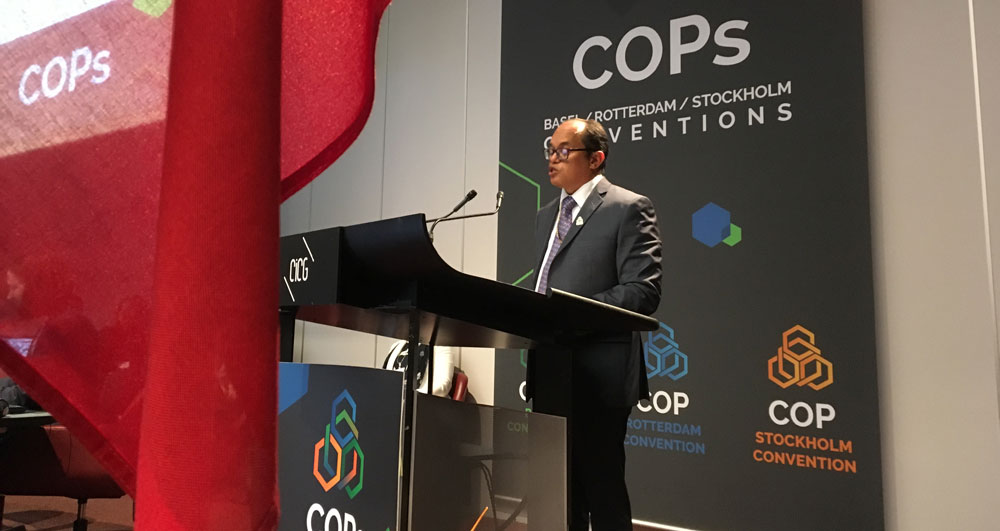 |
Read the opening day BRS press release, outlining what to expect from the 2019 meetings of the conferences of parties to the Basel, Rotterdam & Stockholm conventions.
2019 Triple COPs open in Geneva: for a Clean Planet & Healthy People
 The threats to human health and the environment from hazardous chemicals and waste are omnipresent, well understood, and impossible to ignore. The World Health Organisation (WHO) recently estimated that 1.6 million preventable deaths per year[1] are due to unsound management of chemicals and waste. Governments from across the world have converged on Geneva this week for discussions and decisions aimed at protecting human health and the environment from chemicals and waste.
With an estimated 100 million tonnes of plastic in our seas[2]; an estimated 50 million tonnes of electronic waste generated every year[3]; and with scientists predicting the collapse of wildlife populations as a result of pollution from chemicals[4], there is an urgent need to take action for a Clean Planet, Healthy People.
Speaking at the opening session of the Triple COPs, Rolph Payet, Executive Secretary (UNEP) of the three conventions, said that “governments have the opportunity to take historic and legally-binding decisions in these next two weeks, decisions which will result in practical steps to rid the world of marine plastic litter, which will help stem the tide of electronic waste, to further protect our health and environment from some of the most toxic and hazardous chemicals in the world”.
“The global population is expected to reach 9.7 billion by 2050. The challenge will be to produce enough nutritious and healthy food without harming human health and the environment by hazardous pesticides. Increased knowledge sharing between Parties is an important element in reducing pesticide risks and shifting towards a sustainable agriculture” added Hans Dreyer, Executive Secretary (FAO) of the Rotterdam Convention.
Key decisions are expected concerning plastic waste, electronic waste, and hazardous chemicals.
Plastic Waste
With an estimated 100 million tonnes of plastic in our seas, 80-90% of which has come from land-based sources, the high public profile of this issue is understandable. Reducing waste generation at source, and improving waste management thereafter, would go a long way towards solving this problem. To that end, the Basel Convention COP will consider proposed legally-binding amendments to the convention which will enable the 187 Parties to better regulate movements of plastic waste, add transparency, bring exports of plastic waste under the rule of law, oblige governments to minimise waste generation, and oblige them to manage plastic waste in an environmentally sound manner. A new private-public partnership is also proposed, which would share best practices, raise public awareness, and build capacities in developing countries to deal with this most pressing issue. For more on this see:
https://www.brsmeas.org/?tabid=4332&blogId=5169 and
https://www.brsmeas.org/tabid/7656/Default.aspx
Electronic Waste
Electronic waste – or e-waste – is thought to be the fastest growing hazardous waste stream in the world and is regulated by the Basel Convention. Considered hazardous due to the presence of toxic materials such as mercury, lead, and brominated flame retardants in electrical appliances, e-waste may also contain economically valuable metals such as gold, copper and nickel. Together, computers, printers, televisions, refrigerators, air-conditioning units, mobile phones and other e-waste make up an estimated 50 million tonnes being generated per year a figure which might more than double to 120 million tonnes per year by 2050. The 2019 Basel COP will consider updated technical guidelines for the environmentally sound management of e-waste which, if adopted, will constitute a set of globally agreed, practical procedures for reducing the harmful impacts on human health and environment. For more on e-waste see:
https://www.basel.int/tabid/4063/Default.aspx
Listing of Chemicals: Persistent Organic Pollutants (POPs) under the Stockholm Convention
Two new chemicals are proposed for listing in Annex A to the Stockholm Convention, namely the pesticide Dicofol and Perfluorooctanoic acid (PFOA) its salts and PFOA-related compounds (some applications with time-limited exemptions). Listing in Annex A to the Convention obliges Parties to eliminate these chemicals from use. The two chemicals are proposed for listing on the basis of a robust review process addressing risks, management options and alternatives by the UN’s POPs Review Committee. Dicofol is used as a miticide on a variety of field crops, fruits, vegetables, ornamentals and tea and coffee and is known to cause skin irritation and hyperstimulation of nerve transmissions in humans as well as being highly toxic to fish, aquatic invertebrates, algae and birds. PFOA is a widely-used industrial chemical used in the production of non-stick cookware and food processing equipment, as well as a surfactant in textiles, carpets, paper, paints and fire-fighting foams. As a substance of very high concern, it is known to be linked to major health problems including kidney cancer, testicular cancer, thyroid disease and hypertension in pregnancy. More information on these chemicals is available in factsheets at:
https://chm.pops.int/tabid/243/Default.aspx
Listing of Chemicals: Pesticides and Industrial Chemicals under the Rotterdam Convention
Three new chemicals are proposed for listing in Annex III to the Rotterdam Convention, namely acetochlor and phorate (pesticides) and hexabromocyclododecane (an industrial chemical). The COP will further consider four “old” chemicals recommended for listing during previous COPs, which met all the criteria but for which consensus was not yet reached, namely carbosulfan, fenthion and paraquat formulations, and chrysotile asbestos. If listed, these chemicals would be included in the prior informed consent (PIC) procedure enabling better-informed decision-making on the trade in chemicals, thereby protecting human health and the environment. More information on these chemicals is available at:
https://www.pic.int/tabid/1185/Default.aspx
Accredited journalists from the Geneva press corps are encouraged to attend. Other journalists may seek accreditation by using the online guidance and forms found at:
https://www.brsmeas.org/tabid/7980/Default.aspx
Notes for Editors:
The Basel Convention on the Control of Transboundary Movements of Hazardous Waste and their Disposal is the most comprehensive international environmental agreement on hazardous and other wastes and is almost universal, with 187 Parties. With an overarching objective of protecting human health and the environment against the adverse effects of hazardous wastes and other wastes, its scope covers a wide range of wastes defined as “hazardous” based on their origin and/or composition and characteristics, as well as two types of wastes defined as “other wastes” – household waste and incinerator ash. See www.basel.int
The Rotterdam Convention on the Prior Informed Consent Procedure (PIC) for Certain Hazardous Chemicals and Pesticides in International Trade, is jointly administered by the United Nations Food and Agriculture Organization (FAO) and UN Environment (UNEP). The 161 Parties to this legally-binding Convention share responsibility and cooperate to safely manage chemicals in international trade. To date 50 chemicals and pesticides are listed in its Annex III. The Convention does not introduce bans but facilitates the exchange of information among Parties on hazardous chemicals and pesticides, and their potential risks, to inform and improve national decision making. In addition, through the PIC Procedure, it provides a legally-binding mechanism to support national decisions on the import of selected chemicals and pesticides in order to minimize the risk they pose to human health and the environment. See www.pic.int
The Stockholm Convention on Persistent Organic Pollutants is a global treaty to protect human health and the environment from chemicals that remain intact in the environment for long periods, become widely distributed geographically, accumulate in the fatty tissue of humans and wildlife, and have harmful impacts on human health or on the environment. Exposure to Persistent Organic Pollutants (POPs) can lead to serious health effects including certain cancers, birth defects, dysfunctional immune and reproductive systems, greater susceptibility to disease and damage to the central and peripheral nervous systems. The Convention requires its Parties to take measures to eliminate or reduce the release of POPs into the environment. As of today, this legally-binding Convention has 182 Parties, giving it almost universal coverage. To date, 28 chemicals of global concern have been listed under the Stockholm Convention. See www.pops.int
- For BRS conventions general media enquiries see: www.brsmeas.org or contact:
Charlie AVIS, Public Information Officer (UN Environment), Geneva +41-79-730-4495
|
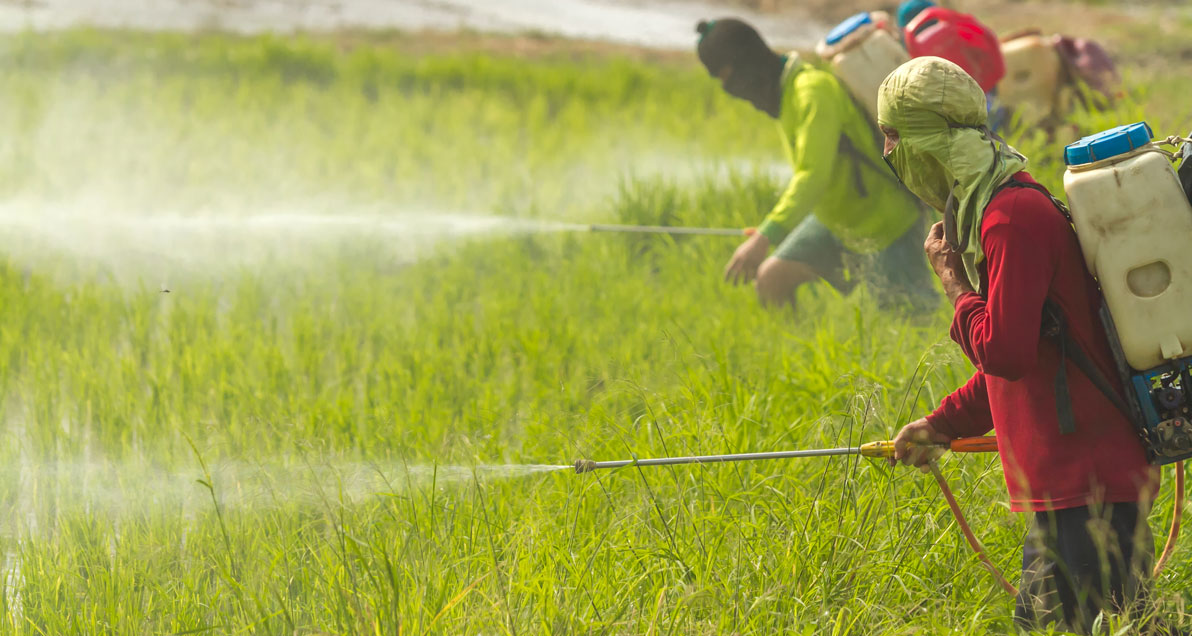 |
To mark World Health Day on 7th April, read the BRS Secretariat’s Press Release calling for greater action to prevent illness and death from unsound management of chemicals and waste.
1.6 million deaths could be prevented annually through the sound management of chemicals and waste
 Geneva, 5 April 2019 – Recently, the World Health Organization estimated the ‘disease burden’ preventable through sound management and reduction of chemicals in the environment at around 1.6 million lives per year.1 As the international community marks World Health Day, three UN conventions whose aim is the sound management of chemicals and waste are stressing the need for urgent and greater actions from governments to reduce the number of illnesses and death from hazardous chemicals and wastes.
Causes of death attributable to unsound management of chemicals and wastes include cancers, cardiovascular diseases, chronic obstructive pulmonary disease, congenital anomalies, chronic kidney disease, poisonings, and self-harm.2
One of the pathways taken by hazardous chemicals into the human body is through our food and liquid intake. Persistent Organic Pollutants (or POPs) are highly toxic chemicals known to be carcinogenic, which accumulate in the fatty tissue of mammals, birds and fish. POPs become more concentrated in higher reaches of the food chain, culminating in humans, potentially leading to serious health effects including certain cancers birth defects dysfunctional immune and reproductive systems, greater susceptibility to diseases, and damage to the central and peripheral nervous systems. Toxic chemicals present in the air also impact our health if we inhale them.
The Basel, Rotterdam and Stockholm conventions work to protect people from these harmful impacts in a multitude of ways. With 187, 161, and 182 parties respectively, the three conventions are nearly universal and are legally-binding, covering the life-cycle of hazardous chemicals and wastes, protecting human health and the environment at every stage. This starts with the reduction and elimination of toxic chemicals, includes the minimisation and environmentally sound management of wastes such as electronic waste, mercury waste, plastic waste and more, as well as the creation of innovative public-private partnerships to tackle household waste, mobile phones, and computing equipment.
For example, the Basel Convention – which in March 2019 marked 30 years since adoption and which is primarily concerned with providing the legal framework for controlling transboundary movements of hazardous wastes and other wastes – has developed globally-agreed technical guidelines on how to manage different waste streams in an environmentally sound manner, including the prevention of impacts on human health from lead acid batteries, healthcare and medical waste, and electronic waste, to name just three.
The Rotterdam Convention features transparent trade regulation measures and an obligatory information-sharing system to enable and ensure informed decision-making from governments regarding the refusal, or import and proper use, of more than 50 hazardous industrial chemicals and agricultural pesticides already listed under the Convention. This has led to lowered health risks to people handling such substances, especially including vulnerable groups such as the rural poor, and women and children.
Meanwhile Parties to the Stockholm Convention have listed 28 of the world’s most toxic substances, leading to measurable lowered human exposure as a result of these chemicals’ reduction or elimination, as demonstrated through the Convention’s Global Monitoring Plan which found lowered levels globally in polychlorinated diphenyls (PCBs), DDT and dioxins and furans.3
At the same time, the need for urgent action to achieve the sound management of chemicals and wastes was a key concern at the recent Fourth UN Environment Assembly, where a Resolution4 was adopted on this subject calling on governments and all other relevant stakeholders to take note of progress achieved by the chemicals and waste conventions and to encourage all stakeholders to seek the establishment of permanent programs of information directed to consumers and the public in general, on the risks generated by chemicals and raise awareness of the responsibilities related to their management.
Further decisions which will help prevent illness and reduce preventable deaths will be taken at the next Conference of the Parties to the Basel, Rotterdam and Stockholm Conventions, in Geneva from 29 April to 10 May 2019, the theme for which is “Clean Planet, Healthy People: Sound Management of Chemicals and Waste”. Draft decisions to be discussed include the listing under the Stockholm Convention of the fluorinated chemical Perfluorooctanoic Acid (PFOA), widely used as a water and oil repellent and found to contaminate drinking water supplies in many communities and Dicofol, a highly toxic organochlorine pesticide used to control mites on many crops and known to be harmful to humans and the environment; the listing of seven additional chemicals under the Rotterdam Convention; and a new Basel Convention partnership on plastic waste and amendments to better incorporate plastic waste into the existing control mechanisms of the Convention.
Notes for Editors:
The Basel Convention on the Control of Transboundary Movements of Hazardous Waste and their Disposal is the most comprehensive international environmental agreement on hazardous and other wastes and is almost universal, with 187 Parties. With an overarching objective of protecting human health and the environment against the adverse effects of hazardous wastes, its scope covers a wide range of wastes defined as “hazardous” based on their origin and/or composition and characteristics, as well as two types of wastes defined as “other wastes” – household waste and incinerator ash. See www.basel.int
The Rotterdam Convention on the Prior Informed Consent Procedure (PIC) for Certain Hazardous Chemicals and Pesticides in International Trade, is jointly administered by the United Nations Food and Agriculture Organization (FAO) and UN Environment (UNEP). The 161 Parties to this legally-binding Convention share responsibility and cooperate to safely manage chemicals in international trade. To date 50 chemicals and pesticides are listed in its Annex III. The Convention does not introduce bans but facilitates the exchange of information among Parties on hazardous chemicals and pesticides, and their potential risks, to inform and improve national decision making. In addition, through the PIC Procedure, it provides a legally-binding mechanism to support national decisions on the import of selected chemicals and pesticides in order to minimize the risk they pose to human health and the environment.See www.pic.int
The Stockholm Convention on Persistent Organic Pollutants is a global treaty to protect human health and the environment from chemicals that remain intact in the environment for long periods, become widely distributed geographically, accumulate in the fatty tissue of humans and wildlife, and have harmful impacts on human health or on the environment. Exposure to Persistent Organic Pollutants (POPs) can lead to serious health effects including certain cancers, birth defects, dysfunctional immune and reproductive systems, greater susceptibility to disease and damage to the central and peripheral nervous systems. The Convention requires its Parties to take measures to eliminate or reduce the release of POPs into the environment. As of today, this legally-binding Convention has 182 Parties, giving it almost universal coverage. To date, 28 chemicals of global concern have been listed under the Stockholm Convention.
For BRS conventions general media enquiries see: www.brsmeas.org or contact:
Charlie AVIS,
Public Information Officer (UN Environment), Geneva
+41-79-730-4495
|
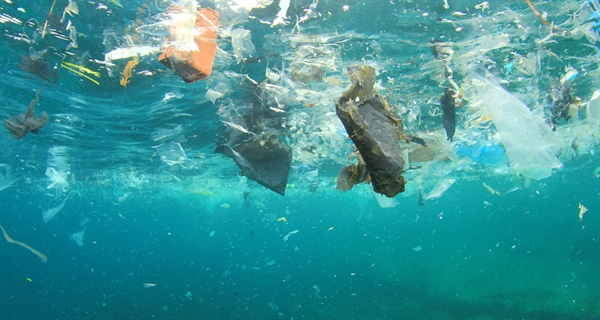 |
With 187 Parties, the Basel Convention has come a long way since adoption on 22 March 1989. Read the BRS Press Release marking this milestone.
1989-2019: 30 years of the legally-binding Basel Convention
 22nd March 2019 - With an estimated 12,000 million tonnes of plastic entering landfills or the natural environment by 2050 under current trends1, and with an estimated 50 million tonnes of electronic waste being generated every year - projected to triple by 20502 - the international community mobilised in Geneva today to renew calls for more comprehensive and effective approaches to waste management. The need for urgent action to achieve the sound management of wastes was a key concern at the recent Fourth UN Environment Assembly where States pledged to work towards defining national targets at the earliest opportunity for reducing waste generation and increasing the reuse of products and recycling of waste.
With public awareness focussing largely on marine plastic litter, “a upstream focus on tackling at source the problem of waste is required more than ever before”, said Rolph Payet, Executive Secretary of the Basel Convention,3 a nearly universal environmental treaty aimed at ensuring the prevention and minimization of the generation of hazardous wastes and other wastes as well as their environmentally sound management, in addition to provisions aimed at controlling their exports and imports.
The international community marked the Convention’s 30th anniversary at an event today in Geneva, Switzerland, during which the many implementation successes were presented and discussed. Commenting on these, Mr Payet noted that “the Basel Convention has an impressive record of continuous innovation and evolution: the waste management problems of 1989, when it was adopted, were very different to the challenges we face today, and I am proud that Parties continue to see it as the principal legally-binding instrument with which to tackle such urgent issues as electronic waste, and plastic waste, issues which were not on our radar thirty years ago. The proposal to amend the Convention to more comprehensively deal with plastic waste, for example, which will be considered next month here in Geneva, demonstrates the continued relevance of this process and the trust that Parties have in our collective ability to step up and find solutions to the world’s most pressing environmental challenges, together.”
This evolution is marked by new priorities that have enriched this treaty and gradually complemented the core business of the Convention, which is the control of transboundary movement of wastes. In 1999, the importance of the environmentally sound management of wastes became a strengthened area of focus; in 2006, heightened attention was given to the sound management of the particular challenging waste stream of electrical and electronic wastes; in 2008, the protection of human health from the hazards of wastes gained increased momentum; and in 2010, setting yet a new chapter in the life of the Convention, prevention and minimization of wastes gained increased support as the importance of working “upstream” was acknowledged. The Convention thus perpetually remains modern and very close to the everyday lives of all citizens: we each have the responsibility and opportunity to contribute towards achieving its objectives.
Household Waste
Central to minimising waste, including plastics, is tackling waste generation at the household level. The environmentally sound management of household waste – a major challenge especially for developing countries – is particularly difficult since not only is the quantity of waste generated increasing rapidly, but the composition of that waste is changing rapidly as well. For that reason, a Basel Convention Partnership on Household Waste was initiated in 2017 to explore and disseminate innovative solutions, an integrated approach, avoidance and minimisation of waste at source as well as systems for the collection, separation, transport, storage, treatment, processing, recycling and where necessary, final disposal, of household waste. More information is available here: https://www.basel.int/?tabid=5082
Plastic Waste
Fortunately, world attention continues to be focussed on the problems associated with plastic waste. The Basel Convention offers avenues for all States to take collective action towards minimising plastic waste generation at source and promoting their environmentally sound management. The next Conference of the Parties (COP), 29 April to 10 May 2019, will consider a range of additional steps to better address the challenges of plastics wastes4 including proposed amendments to the Convention on plastic wastes5; and the establishment of a new Partnership on Plastic Waste. This Partnership is designed as an international vehicle for public-private cooperation, sharing of best practices, and technical assistance in the area of at-source measures to minimise and more effectively manage plastic waste, thus helping tackle the global environmental problem of marine plastic litter. More information on minimising plastic waste is available here:https://www.basel.int/?tabid=6068
Electronic Waste
Electronic waste – or E-waste – is one of the fastest growing streams of hazardous waste in the world and is fuelled by the rapid growth in computing and mobile phone equipment sales. E-waste is considered hazardous due to the presence of toxic substances such as mercury, lead, and brominated flame retardants which are harmful to both human health and the wider environment. E-waste may also include precious and economically valuable metals such as gold, copper and nickel as well as rare materials of strategic value such as indium and palladium. The Basel Convention established innovative public-private partnerships to develop and implement policy responses to these issues and to build capacity in developing countries to manage e-waste, including globally-agreed Technical Guidelines on the transboundary movements of E-waste, pilot projects, and a Massive, Open, Online Course (MOOC) on E-waste which was undertaken by approximately 1,000 participants. The next Basel Convention COP may consider a new Partnership to build on these successes. The technical guidelines are available here: https://www.basel.int/?tabid=6068
Notes for editors:
The Secretariat of the Basel, Rotterdam, and Stockholm Conventions, or BRS Secretariat, supports Parties implement the three leading multilateral environment agreements governing chemicals and waste, in order to protect human health and the environment. See www.brsmeas.org for more info and follow @brsmeas twitter feed for daily news.
For Media enquiries, interviews, more information, contact:
Charlie Avis
Public Information Officer
BRS Secretariat
Charles.avis@brsmeas.org
Tel: +41-79-7304495
3 The Basel Convention on the Control of Transboundary Movements of Hazardous Waste and their Disposal is the most comprehensive international environmental agreement on hazardous and other wastes and is almost universal, with 187 Parties. For more information, see www.basel.int
|
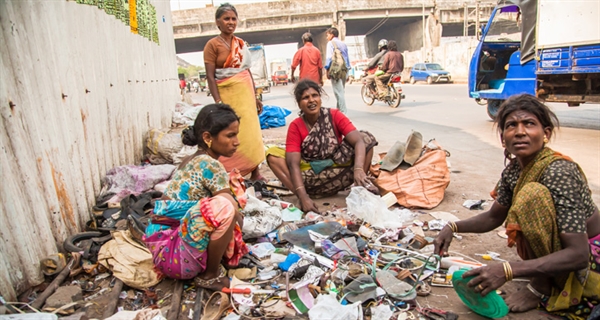 |
To mark International Women’s Day, read our new Press Release on why women and girls are more likely than men to suffer adverse effects from chemicals and waste.
Women disproportionately vulnerable to health risks from chemical and waste pollution
 8 March 2019 - Due to a combination of socio-economic, cultural, and physiological factors, women and girls are disproportionately vulnerable to the harmful impact of pollution from chemicals and waste. At the same time, in many countries, women are increasingly assuming leadership roles in raising awareness, and protecting their communities, from these impacts.
The adverse effects of hazardous chemicals and wastes on different groups of the population vary depending on the level of exposure, behavioural patterns, age, biological effect (for example, endocrine disruption), geographical location, nutritional status and co-exposure to other chemicals. Certain types of chemicals, such as persistent organic pollutants (POPs), can build up to dangerous levels in humans causing adverse reproductive, developmental, immunological, hormonal, and carcinogenic effects with varied impacts on vulnerable groups of the population.
Women are often more exposed to chemicals and waste as a result of different socio-economic roles, defined along gender lines. According to a study in Indonesia, and indeed in many countries, women are still expected to perform the bulk of domestic work in and around the house, including the sorting, removal, and disposal of household waste, which in many cases include open burning of plastics and other household waste. This practice exposes women to highly toxic persistent organic pollutants, heavy metals with significant impacts on their health and as potential child bearers. Recent body burden analysis has shown that such chemicals do get passed out to children during pregnancy.1
In farming, more than 40% of agricultural work in developing countries is done by women and girls. Because women are twice as likely to be illiterate2 as men, vital chemical and safety information is often overlooked, increasing the likelihood of mis-handling and consequent unintended exposure to pesticides.
Cultural norms also impact on women and girls’ vulnerabilities. Of the estimated 13,000 chemicals3 used in beauty and hygiene products only about 10% have been evaluated for safety. A recent study concluded that women of colour, independent of socio-economic status, are most exposed to higher levels of such chemicals4 as a result of using products such as skin-whiteners and hair products, which often contain toxic substances, including heavy metals such as mercury and lead.
Such socio-economic and cultural factors are compounded by physiological differences between women and men, since their smaller size and role in the reproductive cycle, women are proportionately more heavily impacted than men even when exposure is the same. Up to 33% of a woman’s chemical burden can be passed on to her baby during gestation, through the placenta, as well as via breastfeeding.5 Women are often not even aware of the health risks they are facing, especially given that some of these chemicals can remain in the body for long periods and manifest themselves later in time.
On the other hand, there has been progress. Women are increasingly stepping forward to take on leadership roles to protect the most vulnerable segments of our population from the potentially harmful effects of certain chemicals and wastes. Both the Gender Heroes publication and the Gender Pioneers initiative under the BRS Conventions point to examples of the empowerment of women in marginalised communities and the impacts that their actions have had, for example, in the promotion of ecological agriculture, in the reduction of use of highly hazardous pesticides, in the protection of children from the toxics found in toys, and in the safer recovery and management of recyclable elements of e-waste from landfill sites. For more information on the BRS Gender Heroes and Gender Pioneers see: https://www.brsmeas.org/?tabid=4759
These examples emphasise the need for enhanced gender considerations and sound management of chemicals and wastes in the broader push for implementing the sustainable development goals (SDGs). Indeed the relationship between chemicals and wastes and gender, under SDG 5, requires constant emphasis, attention, and mainstreaming. This will be further explored during the next Conference of the Parties to the Basel, Rotterdam and Stockholm Conventions, in Geneva from 29 April to 10 May 2019, the theme for which is “Clean Planet, Healthy People: Sound Management of Chemicals and Waste”.
Notes for Editors:
The Basel Convention on the Control of Transboundary Movements of Hazardous Waste and their Disposal is the most comprehensive international environmental agreement on hazardous and other wastes and is almost universal, with 187 Parties. With an overarching objective of protecting human health and the environment against the adverse effects of hazardous wastes, its scope covers a wide range of wastes defined as “hazardous” based on their origin and/or composition and characteristics, as well as two types of wastes defined as “other wastes” – household waste and incinerator ash. See www.basel.int
The Rotterdam Convention on the Prior Informed Consent Procedure (PIC) for Certain Hazardous Chemicals and Pesticides in International Trade, is jointly administered by the United Nations Food and Agriculture Organization (FAO) and UN Environment (UNEP). The 161 Parties to this legally-binding Convention share responsibility and cooperate to safely manage chemicals in international trade. To date 50 chemicals and pesticides are listed in its Annex III. The Convention does not introduce bans but facilitates the exchange of information among Parties on hazardous chemicals and pesticides, and their potential risks, to inform and improve national decision making. In addition, through the PIC Procedure, it provides a legally-binding mechanism to support national decisions on the import of selected chemicals and pesticides in order to minimize the risk they pose to human health and the environment. See www.pic.int
The Stockholm Convention on Persistent Organic Pollutants is a global treaty to protect human health and the environment from chemicals that remain intact in the environment for long periods, become widely distributed geographically, accumulate in the fatty tissue of humans and wildlife, and have harmful impacts on human health or on the environment. Exposure to Persistent Organic Pollutants (POPs) can lead to serious health effects including certain cancers, birth defects, dysfunctional immune and reproductive systems, greater susceptibility to disease and damage to the central and peripheral nervous systems. The Convention requires its Parties to take measures to eliminate or reduce the release of POPs into the environment. As of today, this legally-binding Convention has 182 Parties, giving it almost universal coverage. To date, 28 chemicals of global concern have been listed under the Stockholm Convention.
For more on gender aspects of chemicals and waste, see https://www.brsmeas.org/?tabid=3651 or contact Susan WINGFIELD, Secretariat of the Basel, Rotterdam and Stockholm Conventions (UNEP), Geneva: +41-79-233-3218, +41-22-917-78406, susan.wingfield@brsmeas.org
For BRS conventions general media enquiries see www.brsmeas.org or contact Charlie AVIS, Public Information Officer (UN Environment), Geneva +41-79-730-4495
1 From the BRS Scoping Study on Gender in Indonesia, full report here: https://www.brsmeas.org/?tabid=5816
2 Both statistics from FAO data summarised in the infographic at: https://www.fao.org/resources/infographics/infographics-details/en/c/180754/
3 Zota & Shamasunder, 2017, The environmental injustice of beauty: framing chemical exposures from beauty products as a health disparities concern, American Journal of Obstetrics & Gynecology, Vol 127(4):418 online: https://www.ncbi.nlm.nih.gov/pubmed/28822238
4 Ibid
5 UNDP, 2017, Gender Mainstreaming - a Key Driver of Development in Environment & Energy. Available online: https://www.undp.org/content/dam/undp/library/Environment%20and%20Energy/Sustainable%20Energy/Gender_Mainstreaming_Training_Manual_2007.pdf
|
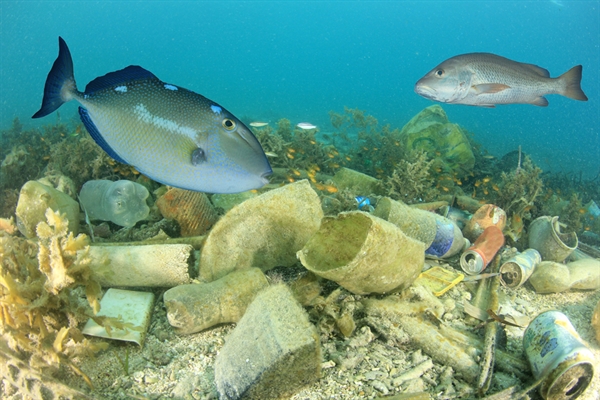 |
With people everywhere marking World Wildlife Day on 3 March, read the new BRS Press Release on the impact of chemicals and waste on our planet’s fauna.
Scientists predict collapse of wildlife populations due to pollution from chemicals and waste
 The impact of pollution - from chemicals and waste - on wildlife is far-reaching and its consequences are likely to be lethal to many species. Even the world’s seemingly pristine habitats show signs of pollution from plastics, whilst one group of toxic chemicals – the Persistent Organic Pollutants or POPs – are by their very nature able to travel long-distances, ending up in remote regions far from industrialisation such as the Arctic.
Bird populations have long been known to be vulnerable to chemical pesticides, with the renowned writer Rachel Carson first bringing public attention to this in her seminal work from 1962, “Silent Spring”. Last year’s State of the World’s Birds report[1] by Birdlife International found that more than 1,400 species, or 1 in 8 of all bird species, are currently threatened with extinction, with more than 1,000 species at risk from agriculture and a further 200 from pollution. Bees and other pollinators are similarly impacted by chemical use, with UN Environment[2] recently noting that more than 75% of food crops and 90% of wild flowering plants are dependent upon pollinators for their existence and that the application of chemicals such as neonicotinoids is strongly implicated as adversely affecting bees and other pollinators.
Sadly, the body of evidence for such impacts is growing. Recently, scientists[3] concluded that entire populations of killer whales, for example, are threatened due to their exposure to just one group of POPs, known as PCBs - or polychlorinated biphenyls. Before being controlled under the UN’s Stockholm Convention when it entered into force in 2004, PCBs were widely produced and used in electric transformers and capacitors, and as additives in paint, carbonless copy paper, and plastics, especially in North America, Europe and Japan. Once released, PCBs found their way into the food chain and have accumulated in the bodies of killer whales or orcas (Orcinus orca sp.) where they have impacted upon the whales’ immunity and reproductive systems, leading to lower calving rates. Concentrations of chemicals such as PCBs may be transmitted from mothers to young already in the womb through the placenta, passing the toxic legacy on to future generations.
As a result, populations of whales found in Brazilian, Japanese, Pacific north-west of America, United Kingdom, and northern Pacific (Biggs) waters are all tending towards complete collapse, as a result of PCB contamination[4].
That PCBs were already banned in many countries several years ago shows how persistent these chemicals are, underlining the need for the fullest possible implementation of the Stockholm Convention, and its sibling conventions dealing with chemicals and waste, including the Rotterdam and the Basel conventions.
The wide geographical extent of PCB contamination also stresses the need for global collaborative action towards the sound management of chemicals and waste. The international community will soon come together at the fourth UN Environment Assembly (UNEA-4: Nairobi, 11 to 15 March 2019), and again at the joint meetings of the conferences of the Parties to the Basel, Rotterdam and Stockholm conventions (Triple COPs: Geneva, 29 April to 11 May 2019) to consider proposals for strengthening international governance to deal with pollution, including from plastic waste and from POPs. The theme of the next Triple COPs is “Clean Planet, Healthy People: Sound Management of Chemicals and Waste”.
For example, Parties to the Stockholm Convention will discuss listing the industrial chemical perfluorooctanoic acid (PFOA), its salts and PFOA-related compounds, widely used in domestic non-stick cooking ware and food-processing appliances, surface treatment agents in textiles, paper and paints, and in firefighting foams. The chemical is known to be toxic to humans and the environment with links to major health issues such as kidney cancer, testicular cancer, thyroid disease, and pregnancy-induced hypertension[5]. Listing PFOA under the Convention would require its elimination, thus protecting current and future generations of people and wildlife from its harmful impacts.
Notes for Editors:
The Stockholm Convention on Persistent Organic Pollutants is a global treaty to protect human health and the environment from chemicals that remain intact in the environment for long periods, become widely distributed geographically, accumulate in the fatty tissue of humans and wildlife, and have harmful impacts on human health or on the environment. Exposure to Persistent Organic Pollutants (POPs) can lead to serious health effects including certain cancers, birth defects, dysfunctional immune and reproductive systems, greater susceptibility to disease and damage to the central and peripheral nervous systems. Given their long-range transport, global action is needed to protect citizens and the environment from POPs. In response to this global problem, the Stockholm Convention, which was adopted in 2001 and entered into force in 2004, requires its Parties to take measures to eliminate or reduce the release of POPs into the environment. As of today, this legally-binding Convention has 182 Parties, giving it almost universal coverage. To date, 28 chemicals of global concern have been listed under the Stockholm Convention.
For more information, please contact:
- For Stockholm Convention, PCBs, and other POPs: www.pops.int or contact:
Kei OHNO WOODALL, Secretariat of the Basel, Rotterdam and Stockholm Conventions (UNEP), Geneva: +41-79-233-3218, +41-22-917-78201, kei.ohno-woodall@brsmeas.org
- For BRS conventions general media enquiries: www.brsmeas.org or contact:
Charlie AVIS, Public Information Officer (UN Environment), Geneva +41-79-730-4495
|
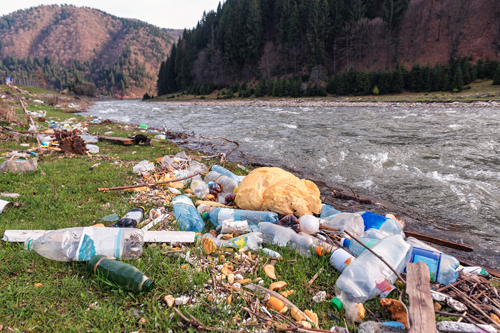 |
In Geneva on International Mountains Day, experts urge greater efforts to beat plastic pollution upstream, since Mountains Matter.
Read the BRS Press Release on Plastics in the Mountains
 As International Mountains Day is marked around the world, and recognition grows that the global plastics problem is not restricted to our oceans, mountain experts call for renewed action to tackle plastic pollution.
With public attention focussing largely on marine plastic litter, “a focus upstream on tackling the problem at source is required more than ever before”, says Carlos Martin-Novella, Deputy Executive Secretary of the Basel Convention,[1] a nearly universal treaty aimed at ensuring the prevention and minimization of the generation of hazardous wastes and other wastes as well as their environmentally sound management, in addition to provisions aimed at controlling their exports and imports.
Speaking at an event in Geneva, Switzerland today at which mountain experts were brought together to discuss ways forward for relieving mountain regions from the pressure of pollution, Martin-Novella went on to say that “the fact that even high-altitude mountains like the Alps – thought to be a relatively clean environment - are significantly polluted by plastics shows that we really cannot wait, we must strengthen existing international instruments and we must accelerate their implementation.” Recent research also identified microplastic pollution even high up in the Swiss mountains, with researchers concluding that this microplastics contamination must be windborne[2].
Central to minimising waste, including plastics, is tackling waste generation at the household level. Household waste – a major challenge especially for developing countries – is particularly difficult since not only is the quantity of waste generated increasing rapidly, but the composition of that waste is changing rapidly as well. For that reason, a Basel Convention Partnership on Household Waste was initiated in 2017 to explore and disseminate innovative solutions, an integrated approach, avoidance and minimisation of waste at source as well systems for the collection, separation, transport, storage, treatment, processing, recycling and where necessary, final disposal, of household waste. More information is available here.
Indeed, world attention continues to be focussed on the problems associated with plastic waste. A multi-faceted problem which will require multiple solutions, the Basel Convention offers avenues for minimising plastic waste generation at source and promoting their environmentally sound management, which led to a decision at a recent experts’ meeting in Geneva proposing a new Partnership on Plastic Wastes under the Basel Convention[3]. This partnership, which could be established by Parties in May next year, would be an international vehicle for public-private cooperation, sharing of best practices, and technical assistance in the area of at-source measures to minimise and more effectively manage plastic waste, thus helping tackle the global environmental problem of plastic litter, including in the oceans. More information on minimising plastic wastes is available here.
NOTES for EDITORS:
The Secretariat of the Basel, Rotterdam, and Stockholm Conventions, or BRS Secretariat, supports parties implement the three leading multilateral environment agreements governing chemicals and waste, in order to protect human health and the environment. See www.brsmeas.org for more info and follow @brsmeas twitter feed for daily news.
Media enquiries, interviews, more information, contact:
Charlie Avis
Public Information Officer
BRS Secretariat
Charles.avis@brsmeas.org
Tel: +41-79-7304495
[1] The Basel Convention on the Control of Transboundary Movements of Hazardous Waste and their Disposal is the most comprehensive international environmental agreement on hazardous and other wastes and is almost universal, with 187 Parties. For more information, see www.basel.int
|
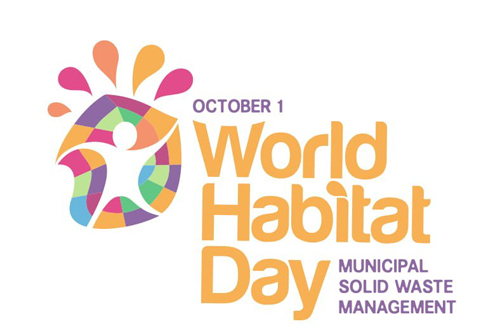 |
The BRS press release on Basel Convention partnerships is online, marking World Habitat Day 2018 and its focus on solid waste.
Basel Convention partnerships take action to minimise solid waste generation
 As World Habitat Day is marked around the world and attention is focussed on the challenges for improving solid waste management, a UN convention on waste strengthens the partnership approach to develop and disseminate best practices for waste minimisation.
These partnerships have been initiated and facilitated by the Basel Convention,[1] and feature alliances of government, the private sector, local municipalities, civil society and environmental organisations. They identify, develop, and disseminate innovative approaches for solid waste management, targetting some of the most urgent waste streams through the development of technical support to countries for the environmentally sound management of waste.
Central to minimising waste is tackling waste generation at the household level. Household waste – a major challenge especially for developing countries – is particularly difficult since not only is the quantity of waste generated increasing rapidly, but the composition of that waste is also changing rapidly as well. For that reason, the Partnership on Household Waste was initiated in 2017 with a remit to explore and disseminate innovative solutions for the promotion of an integrated approach including avoidance and minimisation of waste at source as well systems for the collection, separation, transport, storage, treatment, processing, recycling and where necessary, final disposal, of household waste. More information on the Partnership on Household Waste is available here:
https://www.basel.int/Implementation/HouseholdWastePartnerships/Overview/tabid/5082/Default.aspx
Electronic waste, or e-waste, is thought to be the fastest-growing waste stream in the world. E-waste is categorised as hazardous to the presence of toxic materials such as lead, mercury, and brominated flame retardants but might also contain precious metals such as gold, copper and nickel. The threat to human health, when attempting to retrieve these precious materials, is considerable. For that reason, the Partnership on Action on Computing Equipment (PACE) was initiated and to date has implemented pilot projects on environmentally sound management across the world including in Africa, and in central and south America, aimed at building capacity for governments and municipalities, and in the private sector, for handling e-waste in a safe and effective manner. The partnership has also produced technical guidelines, available in all 6 UN languages, for the environmentally sound management of e-waste, available here:
https://www.basel.int/Implementation/TechnicalAssistance/Partnerships/PACE/Overview/tabid/3243/Default.aspx
Finally, world attention continues to be focussed on the problems associated with plastic waste, marine litter, and microplastics. A multi-faceted problem which will require multiple solutions, the Basel Convention offers hope for minimising plastic waste generation at source, which led to a decision at a recent experts meeting in Geneva proposing new Partnership on Plastic Waste under the Basel Convention, designed as an international vehicle for public-private cooperation, sharing of best practices, and technical assistance in the area of at-source measures to minimise and more effectively manage plastic waste, thus helping tackle the global environmental problem of marine plastic litter. More information on minimising plastic waste is available here:
https://www.basel.int/Implementation/MarinePlasticLitterandMicroplastics/Overview/tabid/6068/Default.aspx
For further information:
BRS Press Enquiries
Charlie Avis
Public Information Officer
Charles.avis@brsmeas.org
Tel: +41-79-7304495
[1] The Basel Convention on the Control of Transboundary Movements of Hazardous Waste and their Disposal is the most comprehensive international environmental agreement on hazardous and other wastes and is almost universal, with 186 Parties. For more information, see www.basel.int
|